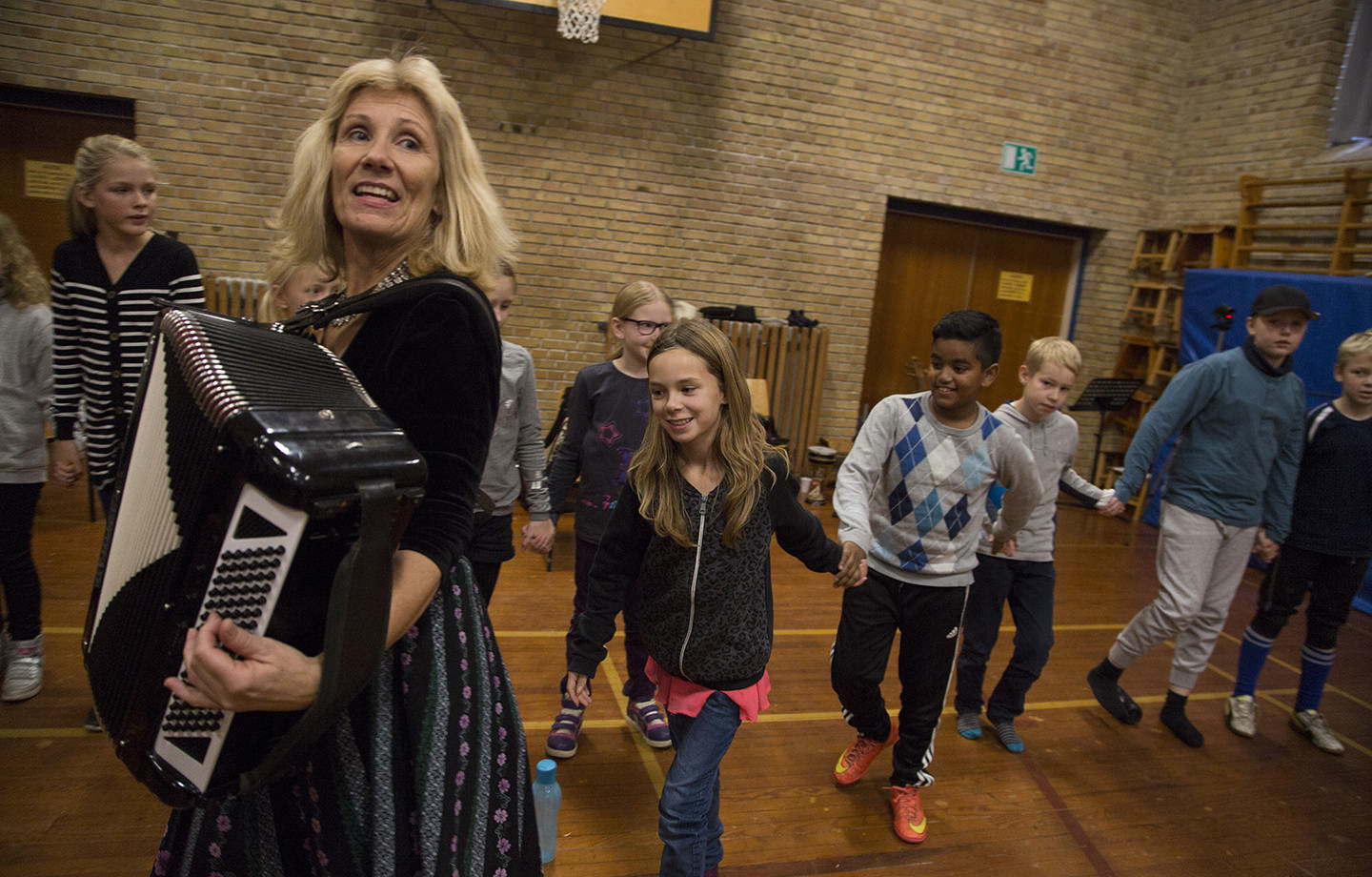In the first post, I gave my opinion on the importance of art to make us creative, flexible and innovative in the future. Now I want to discuss another issue: the importance of art for understanding our background.
Layers on layers on layers …
Very, very early in human history man discovered (or rather invented) music, dance, painting and drawing. Patterns created by hitting logs and stones and whistling sounds from hollow bones forming into rhythmical and melodic structures, sketches in the sand etc. Man began to express himself and art was born!
All these ancient expressions run deep in our cultures and are essential for our understanding of who we are. Later on we became more sophisticated in means, methods and forms, but all the time building on top of earlier layers. Like a real good lasagna where the rich taste comes from a totality of all the ingredients piled on top of each other.
Identity
To understand ourselves, we need to be aware that our life is building on all these many layers. It is necessary if we want to be able to keep things as they are, as well as if we want to change them. No man is an island in the sea of history. So to keep some degree of harmony in our personal identity and in society we have to know this, and we have to embrace the foundation we stand upon.
Adding life to facts
This is where art comes in handy, as it brings alive the feelings buried in the past. To know who we really are, we have to turn to artistic expressions, as they show us the feelings of the generations before us. Art transmits a deeper level of reality and can preserve feelings and emotions over time so we suddenly get a feel of 15h century atmosphere when we hear a medieval tune, or get horrified by the war terror of 1937 by watching Picassos Guernica. Art show us the wonders and horrors of humanity and give life to the cold facts of the past and present.
My culture – your culture
In the same way, art can bring us a step deeper into the understanding of other cultures and be a key to identify with people in China, Greenland or down the next block. The world is multifaceted and it can be hard to even understand your neighbor. Art reflects that and goes beyond what words can explain. Of course it cannot save the world, but it can add understanding which has the potential of giving us a broader perspective of the world and the time we live in.
Art and school
School is there to teach us factual stuff, but also to help with what Germans call “bildung”, meaning helping us to navigate in the culture we are part of by knowing our culture. Therefore, school has an obligation to open more languages than just the verbal one, in order to help us grasp the world. Music is a language, dance is a language, all artistic expressions are languages, and each of them contribute to a deeper and more nuanced perception of reality. Compared to hardcore facts, art offers detours with a deep meaning - we may be a little longer on the way, but we cover a lot more ground as we go along, and end up wiser and more fit for life.
Integrating art in our schools is actually a duty each generation has to the next one to pass on the values that shape our society and ourselves. We cannot leave this only to the free initiative of well-off parents, as it is a human right for all. The UN Convention on the Rights of the Child paragraph 31 clearly states that it is “the right of the child to participate fully in cultural and artistic life” - and I think we better take that serious. No other institution than school can carry out this task!
So schools, get started if you have not already done so – it is so rewarding for the kids, for the schools itself and for society!
And art, know your responsibility! Get out of the ivory tower and meet the kids and see what wonders will happen – for them and for you!
Ebbe Høyrup is CEO at Levende Musik i Skolen (Live Music in Schools), Denmark
Photo: Christian Brandt



Leave a Comment